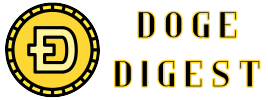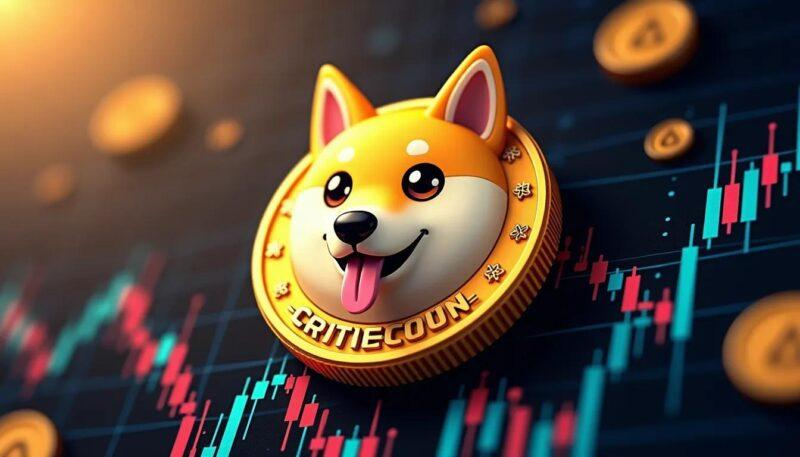In the sprawling digital landscape of cryptocurrencies, Dogecoin has emerged as a playful favorite, celebrated for its spirited community and meme-inspired charm. Yet, behind the wagging tails and viral antics lurks a less friendly reality: the rise of phishing scams targeting Dogecoin holders. As these crafty cyber predators refine their tactics, navigating the world of Dogecoin safely becomes a pressing challenge for enthusiasts and investors alike. This article delves into the shadowy corners of Dogecoin phishing threats, offering guidance to help you protect your digital wallet and keep your crypto journey secure.
Understanding the Rise of Dogecoin Phishing Attacks
The sudden surge in Dogecoin’s popularity has created fertile ground for cybercriminals to exploit unsuspecting enthusiasts. Phishing attacks, in particular, have evolved in complexity and reach, targeting users through fake wallets, spoofed exchanges, and deceptive social media links. These scams often masquerade as enticing giveaways or urgent transaction alerts, designed to lure victims into revealing sensitive information or transferring funds.
What makes these phishing schemes especially dangerous is their ability to blend seamlessly with Dogecoin’s vibrant community culture. Attackers leverage popular memes and celebrity endorsements associated with Dogecoin to build trust. This social engineering angle manipulates users into lowering their guard, increasing the likelihood of falling prey to fraudulent emails or messages that appear legitimate at first glance.
Understanding the anatomy of a typical Dogecoin phishing attempt can greatly improve your defense. Here are some red flags to watch out for:
- Unexpected emails or DMs requesting private keys or login information.
- Links to non-official sites that mimic well-known wallets or exchanges.
- Incredible offers or giveaways that sound too good to be true.
- Urgent calls to action designed to rush you into making mistakes.
| Phishing Technique | Description | Common Indicators |
|---|---|---|
| Fake Wallets | Fake apps or websites mimicking real Dogecoin wallets. | Misspelled URLs, lack of HTTPS, poor design. |
| Spoofed Emails | Emails pretending to be from exchanges or founders. | Generic greetings, urgent language, suspicious attachments. |
| Social Media Scams | Impersonation of influencers promoting giveaways. | New or low-follower accounts, links to external sites. |
Common Tactics Used by Dogecoin Scammers
Scammers preying on Dogecoin enthusiasts often exploit the community’s enthusiasm and trust, deploying crafty schemes designed to siphon away funds with ease. One popular method involves fake giveaways, where victims are lured with promises to double their Dogecoin holdings by sending a small initial amount. These offers flood social media platforms and cryptocurrency forums, blending in seamlessly with legitimate promotions. The emotional pull of “getting something for nothing” makes users especially vulnerable, turning excitement into regret in just a few clicks.
Another favorite ploy is the creation of counterfeit wallets and phishing sites mimicking well-known Dogecoin platforms. These replicas are almost indistinguishable from authentic websites at first glance, tricking even the cautious. Once a user inputs their private key or login credentials, scammers gain full access to their crypto wallets. Pay attention to minor URL discrepancies, unsecured connections, or unexpected pop-ups – all classic red flags.
Watch out for:
- Urgent requests to transfer Dogecoin “for safety”
- Unsolicited messages offering exclusive investment opportunities
- Links sent via direct messages or emails asking for wallet credentials
| Tactic | How It Works | Warning Sign |
|---|---|---|
| Fake Giveaways | Promises to multiply deposits | Request to send Dogecoin upfront |
| Phishing Sites | Cloning official wallet pages | URL mismatch & no HTTPS |
| Impersonation | Fake celebrity or influencer endorsements | Unverified accounts and poor grammar |
Recognizing Red Flags in Suspicious Communications
Phishing attempts often come cloaked in urgency and excitement, designed to lower your guard and spur immediate action. Watch out for messages that pressure you into quick decisions, like promises of “limited-time Dogecoin bonuses” or “exclusive wallet upgrades.” These tactics exploit your fear of missing out, nudging you to click impulsively without verifying the source. If the tone feels rushed or overly enthusiastic, take a step back and scrutinize before responding.
Another key indicator of deceit lies in the details-or lack thereof. Authentic communications from legitimate Dogecoin services or exchanges usually contain personalized information, clear contact details, and professional language. Conversely, suspicious messages frequently feature odd grammar, misspelled words, strange sender addresses, or generic greetings such as “Dear user” or “Crypto investor.” These inconsistencies are more than cosmetic flaws; they signal a message crafted en masse to ensnare many unsuspecting victims.
It’s also helpful to familiarize yourself with common phishing message elements. Below is a quick reference table highlighting typical red flags versus genuine communication traits:
| Red Flag | Legitimate Sign |
|---|---|
| Unsolicited requests for wallet keys or passwords | Official support never asks for sensitive data |
| Links with suspicious URL shorteners or misspellings | Secure URLs matching the official domain |
| Generic sender names or email addresses | Verified company accounts with professional branding |
| Offers that sound too good to be true | Clear, realistic promotions and terms |
By honing your ability to spot these subtle signals, you’ll strengthen your digital defenses and navigate Dogecoin-related communications with much greater confidence.
Practical Steps to Protect Your Dogecoin Wallet
Start by ensuring that your Dogecoin wallet is secured with strong, unique passwords that you update regularly. Avoid the temptation of reusing passwords across multiple platforms, as this creates an easy entry point for cybercriminals. Implement two-factor authentication (2FA) whenever possible, adding an extra layer of protection by requiring not just a password but also a secondary, time-sensitive code that only you can access.
Beware of any unsolicited emails or messages asking for your wallet details or private keys. Always double-check the sender’s credentials and avoid clicking on suspicious links. When in doubt, navigate directly to the official Dogecoin website or your wallet provider by typing the URL yourself. Remember, legitimate services will never request your password or private keys via email or social media.
- Regularly update your wallet software to patch vulnerabilities
- Use hardware wallets for maximum security, especially for large holdings
- Back up your wallet credentials securely and offline
- Avoid public Wi-Fi when accessing your wallet to prevent interception
| Security Measure | Why It Matters |
|---|---|
| Two-Factor Authentication | Prevents unauthorized access even if passwords leak |
| Hardware Wallets | Stores keys offline, safe from online hacks |
| Regular Updates | Fixes security loopholes and bugs promptly |
Responding Effectively to a Phishing Incident
When a Dogecoin phishing attack occurs, rapid and precise action can prevent catastrophic losses. The first step is to isolate affected devices immediately-disconnect from networks to halt any ongoing data exfiltration. Avoid interacting further with suspicious emails or links, and change your passwords on a secure device, focusing on your crypto wallets and associated email accounts.
Next, document every detail of the incident before any troubleshooting. This includes taking screenshots, noting suspicious email addresses, URLs, and timestamps. Such information is invaluable when reporting the event to exchanges, wallet providers, or even law enforcement. Many exchanges offer dedicated support for security breaches, so initiate contact promptly with complete documentation.
- Scan your system: Employ trusted antivirus and anti-malware tools to detect hidden threats.
- Enable two-factor authentication (2FA): Reinforce access security on your crypto accounts.
- Alert your network: Inform friends and community members to prevent further spread.
| Step | Action | Purpose |
|---|---|---|
| 1 | Disconnect from internet | Stop ongoing data leakage |
| 2 | Document evidence | Provide accurate reports |
| 3 | Change all passwords | Prevent unauthorized access |
| 4 | Notify exchanges | Assist in account recovery |
| 5 | Run security scans | Remove hidden malware |
Q&A
Q&A: Beware the Bark – Navigating Dogecoin Phishing Threats Safely
Q1: What is Dogecoin, and why is it a target for phishing attacks?
A: Dogecoin is a popular cryptocurrency known for its friendly Shiba Inu mascot and active online community. Its rising value and ease of access make it an attractive target for cybercriminals who attempt to steal users’ private keys or login credentials through phishing scams.
Q2: What exactly is a phishing attack in the context of Dogecoin?
A: Phishing involves tricking Dogecoin users into revealing sensitive information-like wallet passwords, recovery phrases, or private keys-by masquerading as trusted sources. Attackers often use fake websites, emails, or social media messages that look legitimate but are designed to steal your digital coins.
Q3: What are common red flags of Dogecoin phishing scams?
A: Watch out for unsolicited messages promising free Dogecoin, urgent warnings about account security, misspelled website URLs, poor grammar, or requests for private keys and passwords. If something feels off or too good to be true, it probably is.
Q4: How can I verify if a Dogecoin-related website or message is authentic?
A: Always double-check URLs, ensuring they match official Dogecoin wallets or exchanges. Look for secure HTTPS connections, confirm links through trusted sources, and avoid clicking on links from unknown senders. When in doubt, visit official platforms directly rather than following links.
Q5: What steps should I take to protect my Dogecoin holdings from phishing threats?
A: Use hardware wallets or reputable software wallets, enable two-factor authentication (2FA), keep your recovery phrases offline and private, and regularly update your security software. Never share your private keys or recovery phrase with anyone.
Q6: What should I do if I suspect I’ve fallen victim to a Dogecoin phishing scam?
A: Immediately transfer remaining funds to a secure wallet, change passwords and security settings, report the scam to the relevant platform and authorities, and stay alert for any unusual activity.
Q7: Why is staying informed important in the fight against phishing?
A: Cyber threats evolve rapidly. By staying updated on common phishing tactics and new scams targeting Dogecoin, users can better recognize and avoid traps designed to separate them from their crypto treasures.
Q8: Can community involvement help reduce phishing risks?
A: Absolutely. Sharing knowledge, reporting scams, and supporting official communication channels strengthens the entire Dogecoin ecosystem’s resistance to phishing attacks.
Remember: In the world of cryptocurrency, vigilance is your best defense. Don’t let the bark fool you-keep your Dogecoin safe from phishing predators.
Wrapping Up
As the digital landscape of cryptocurrencies continues to evolve, so do the cunning tactics of those who seek to exploit it. Dogecoin, with its charismatic charm and enthusiastic community, remains a beloved asset-but its very popularity makes it a tempting target for phishing schemes. Staying vigilant, educating yourself, and adopting safe online habits are your best defenses against these digital wolves in sheep’s clothing. Remember, in the wild world of Dogecoin, it’s not just about chasing the next moon shot-it’s about protecting your wallet from the lurking shadows. Stay informed, stay cautious, and let your crypto journey be as joyful and secure as the spirit that first lit the Dogecoin flame.






